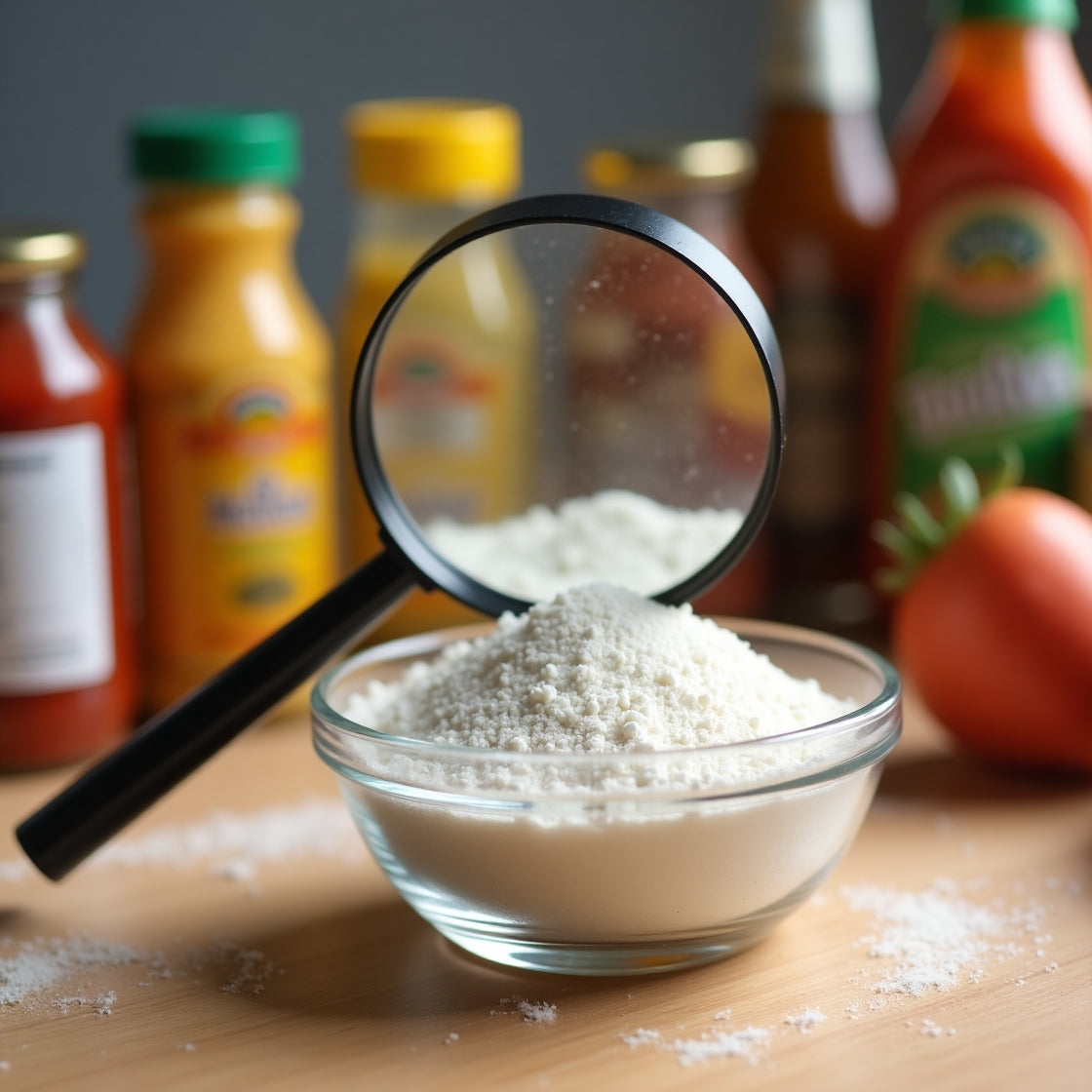
Maltodextrin, a common food additive, is often perceived as harmless, especially when labeled as "organic." However, emerging research suggests that even organic maltodextrin may have adverse health implications.
We know some of our competitors are certified organic and use tapioca maltodextrin as a filler. Find below why we will never put this processed food filler into our bone broth powder.
What Is Organic Maltodextrin?
Organic maltodextrin is a white powder derived from the enzymatic processing of organic starches, such as corn, rice, or potatoes. It's commonly used as a thickener, filler, or preservative in various processed foods, including sauces, salad dressings, baked goods, and sports drinks. Despite its organic origin, the processing strips away most nutrients, rendering it nutritionally void.
Potential Health Risks
Blood Sugar Spikes
Maltodextrin has a high glycemic index, meaning it can cause rapid increases in blood sugar levels. This is particularly concerning for individuals with diabetes or insulin resistance. Consuming foods high in maltodextrin can lead to elevated post-meal blood glucose levels, which are less desirable for health.
Ref: https://pubmed.ncbi.nlm.nih.gov/25674937/
Gut Health Disruption
Research indicates that maltodextrin can alter gut microbiota composition, suppressing the growth of beneficial bacteria and promoting harmful ones. A study found that maltodextrin consumption impairs the intestinal mucus barrier and accelerates colitis through direct actions on the epithelium.
Ref: https://pubmed.ncbi.nlm.nih.gov/35359925/
Digestive Issues
Some individuals may experience gastrointestinal discomfort, such as bloating, gas, or diarrhoea, after consuming maltodextrin. High intake of resistant maltodextrin may cause gastrointestinal discomfort due to gas production and increased osmotic pressure.
Ref: https://pubmed.ncbi.nlm.nih.gov/30351215/
Lack of Nutritional Value
Being highly processed, organic maltodextrin offers no significant nutritional benefits. Regular consumption can contribute to a diet high in sugars and low in fibre, increasing the risk of weight gain, high cholesterol, and type 2 diabetes.
Ref: https://www.medicalnewstoday.com/articles/322426
Conclusion
While organic maltodextrin is prevalent in many processed foods, it's essential to be aware of its potential health risks. Opting for whole, unprocessed foods and reading ingredient labels can help minimize intake and promote better health.
Why would you drink a bone broth that has maltodextrin, organic or not, as an ingredient? It is money down the drain as you are paying for a filler that negates any benefit of the bone broth.
More Reading:
Top 5 Dangers of Maltodextrin

















